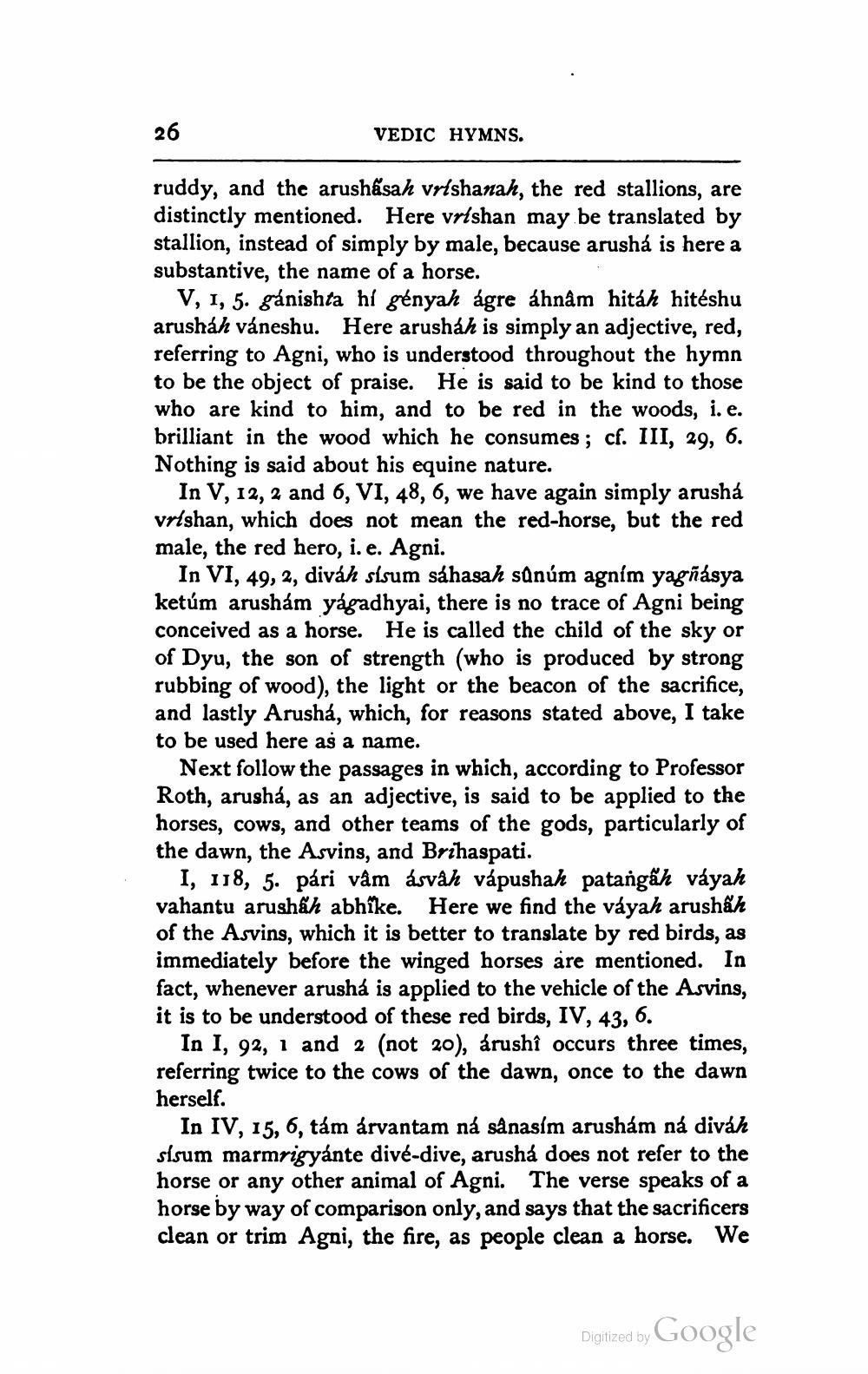________________
26
VEDIC HYMNS.
ruddy, and the arushasah vrishanah, the red stallions, are distinctly mentioned. Here vrishan may be translated by stallion, instead of simply by male, because arushá is here a substantive, the name of a horse.
V, 1, 5. gánishta hí gényah ágre áhnâm hitáh hitéshu arushák váneshu. Here arusháh is simply an adjective, red, referring to Agni, who is understood throughout the hymn to be the object of praise. He is said to be kind to those who are kind to him, and to be red in the woods, i. e. brilliant in the wood which he consumes; cf. III, 29, 6. Nothing is said about his equine nature.
In V, 12, 2 and 6, VI, 48, 6, we have again simply arushá vrishan, which does not mean the red-horse, but the red male, the red hero, i. e. Agni.
In VI, 49, 2, divák sísum sáhasah sûnúm agním yagñásya ketúm arushám yágadhyai, there is no trace of Agni being conceived as a horse. He is called the child of the sky or of Dyu, the son of strength (who is produced by strong rubbing of wood), the light or the beacon of the sacrifice, and lastly Arusha, which, for reasons stated above, I take to be used here as a name.
Next follow the passages in which, according to Professor Roth, arushá, as an adjective, is said to be applied to the horses, cows, and other teams of the gods, particularly of the dawn, the Asvins, and Brihaspati.
I, 118, 5. pári vâm ásvâh vápushah patangah váyah vahantu arushẩh abhîke. Here we find the váyah arushẩh of the Asvins, which it is better to translate by red birds, as immediately before the winged horses are mentioned. In fact, whenever arushá is applied to the vehicle of the Asvins, it is to be understood of these red birds, IV, 43, 6.
In I, 92, 1 and 2 (not 20), árushî occurs three times, referring twice to the cows of the dawn, once to the dawn herself.
In IV, 15, 6, tám árvantam ná sânasím arushám ná divák sísum marmrigyánte divé-dive, arushá does not refer to the horse or any other animal of Agni. The verse speaks of a horse by way of comparison only, and says that the sacrificers clean or trim Agni, the fire, as people clean a horse. We
Digitized by Google




